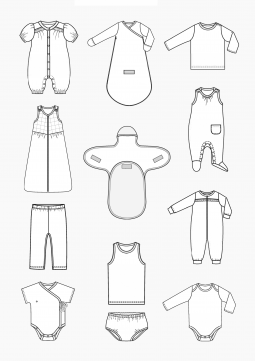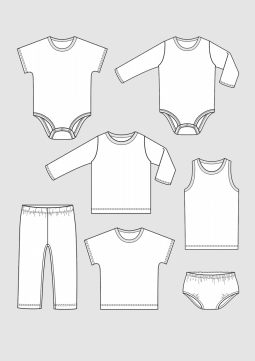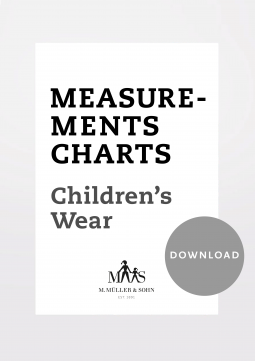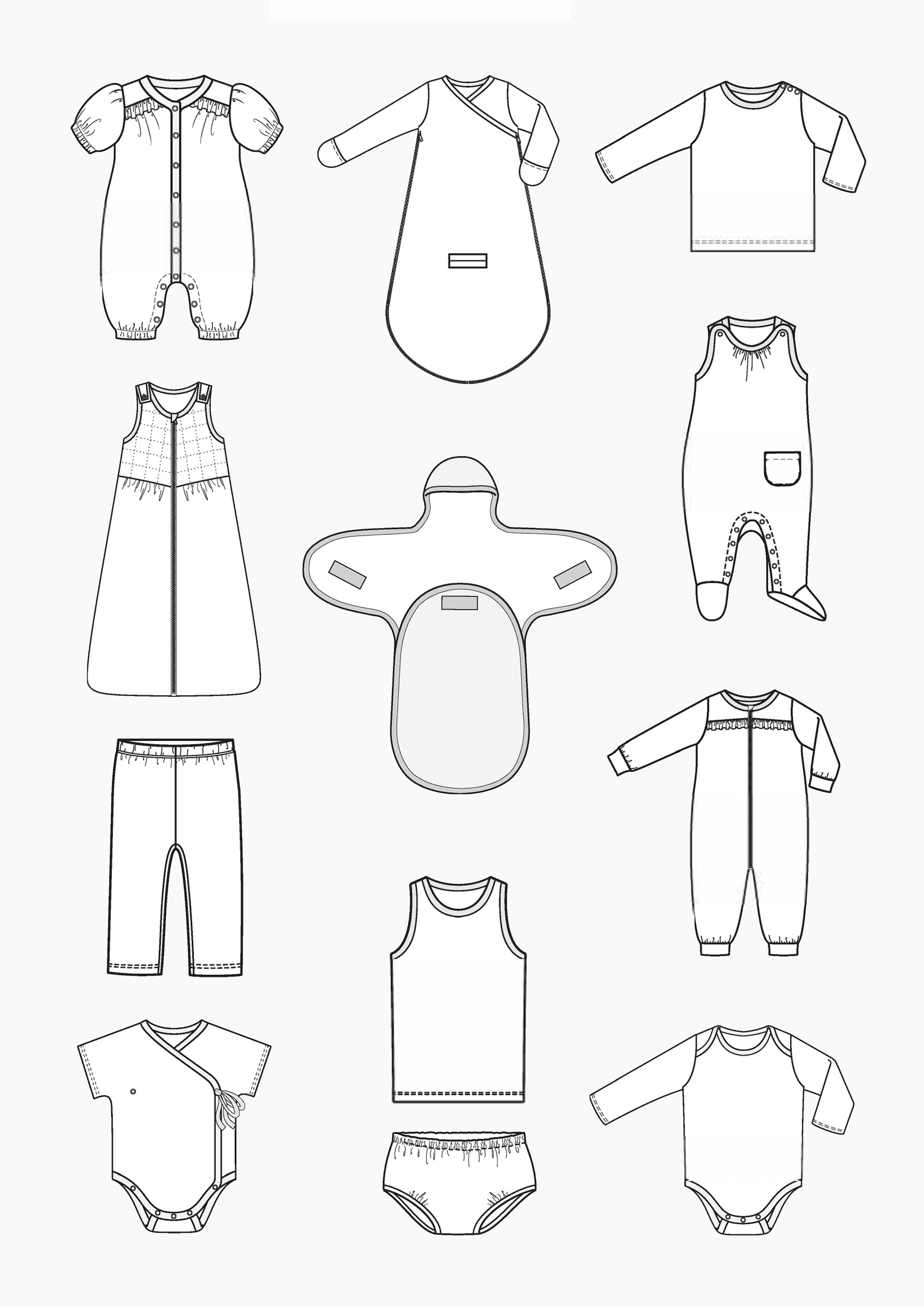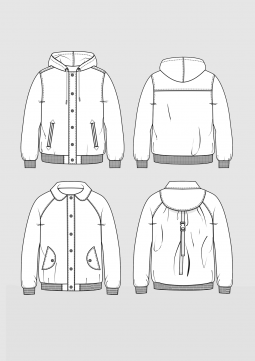Sewing Baby Clothes
Deutsch
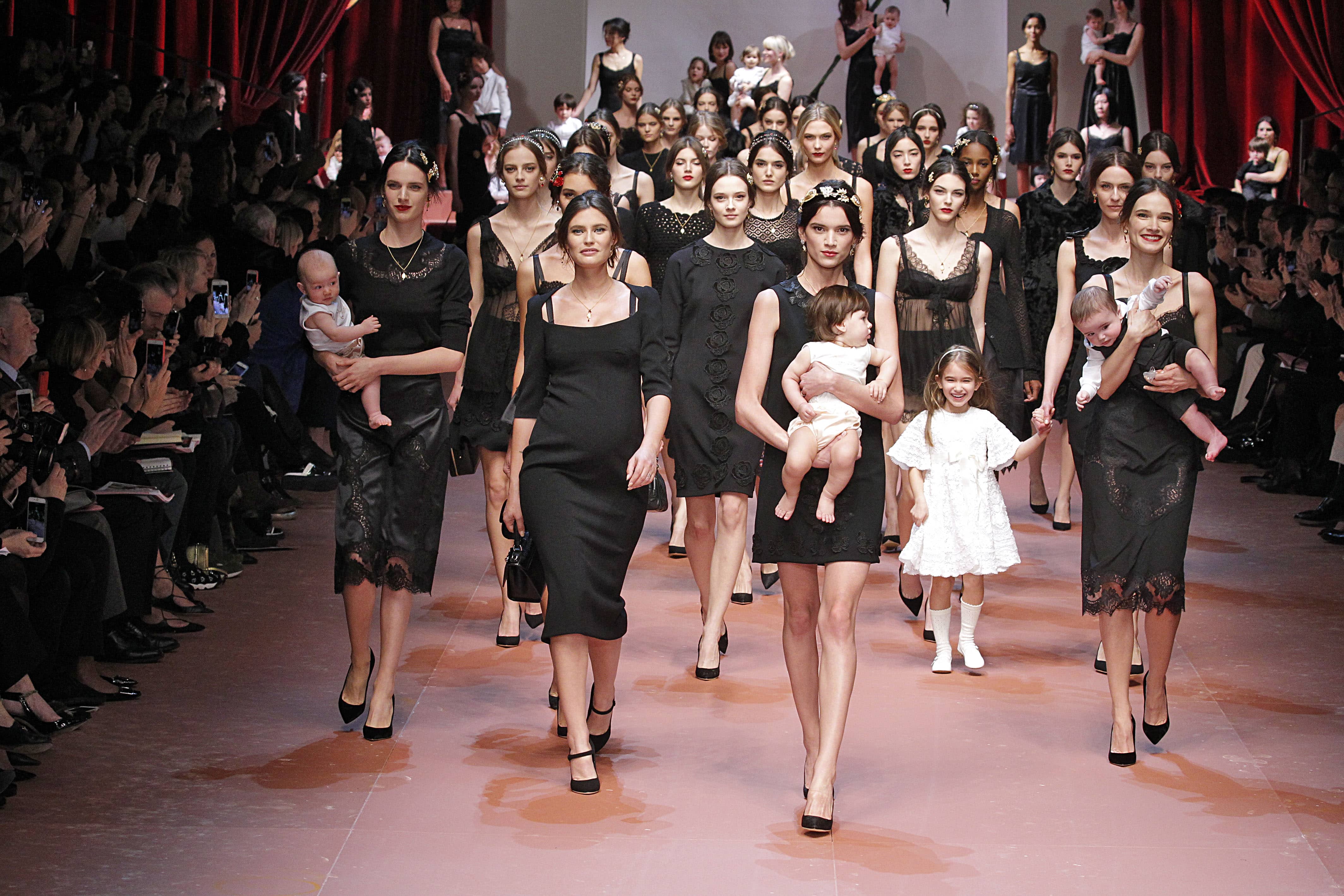
Baby clothing should be as comfortable and functional as possible. This is especially true at night. Pajamas and rompers should always be constructed with extra length and sufficient space for the diaper. With one-piece models, quick access to the diaper must be easy. Push buttons and fine zippers are therefore indispensable. Baby skin is very sensitive and reacts to external influences, so materials with a soft, smooth surface are suitable for sewing baby clothes. For underwear that lies directly on the skin, the fabric should therefore be selected very carefully. Classic textiles for baby clothing are soft jersey, fine fabrics made of cotton and wool, as well as nicki fabric and fleece. Elastic material makes dressing easier and allows sufficient freedom of movement. Pattern construction for Babies isn’t that easy, because they have different proportions than schoolchildren, the head of a baby accounts for one fifth of the body size. Thus, the measurements should be taken precisely and sufficient comfort width should be included in the construction of the patterns.
This article shows an excerpt of the construction of a longsleeve baby body and a wrap body as well as an insight into the pattern constructions from the e-dossier Pattern Making Baby Clothes. You will also find instructions for taking exact measurements of babies.
Content
- Taking Measurements
- Pattern Construction Longsleeve Baby-Body
- Pattern Construction Wrap Body
- Instructions for Pattern Construction for Baby Clothes
- Sewing Pattern for Baby Clothes
Taking Measurements
Measuring babies is often more difficult and less accurate than measuring older children and adults. Newborns and infants up to 18 months do not have the motor skills to stand upright, to sit straight and to participate actively in the measuring process or they are just starting to develop these abilities. The height can be determined in newborns and in the first months by lying down with legs stretched. Babies and infants have different body proportions than adults. The torso is still not very pronounced and chest, waist and hip girths are relatively identical.
Measuring Tools
A cardboard measuring strip for the wall, a waist measure, a tape measure, a small angle and a measuring chart.
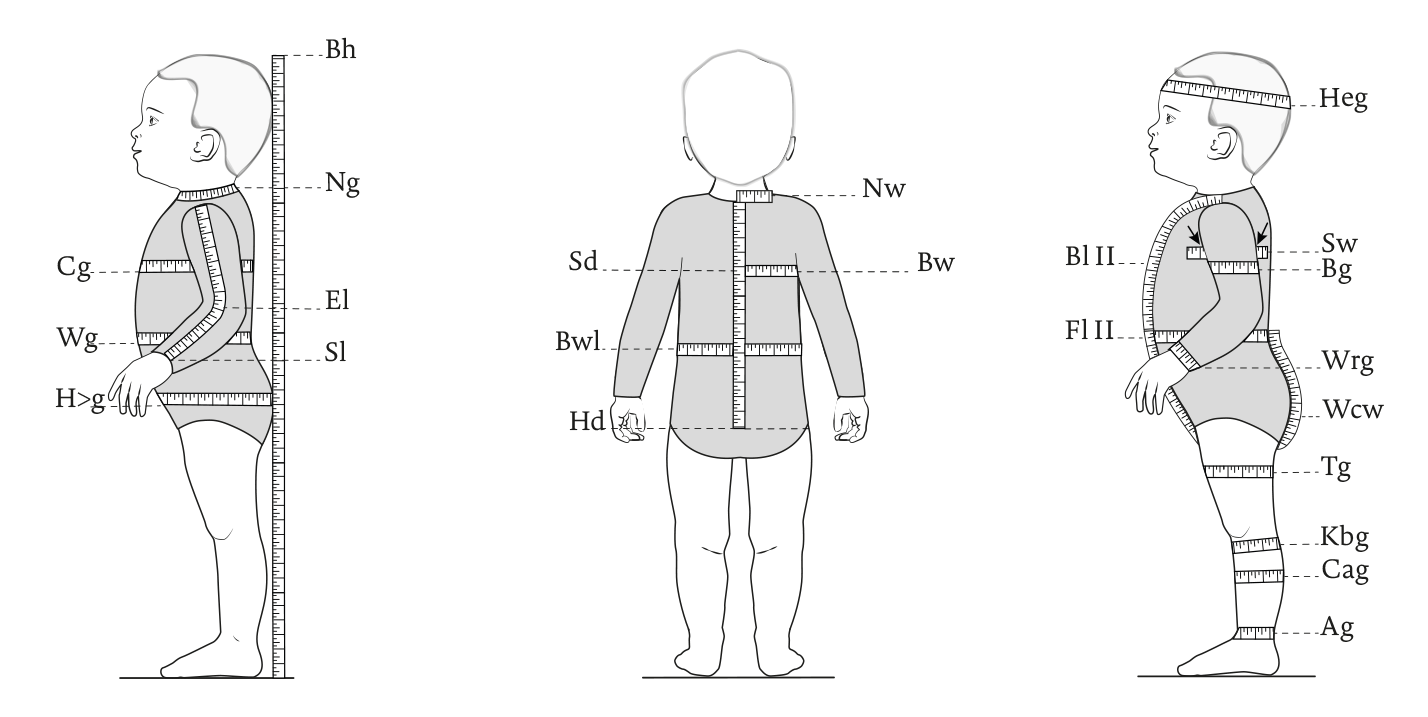
Bh – Body height
Measure the body height from the top of the head to the sole of the foot.
Cg – Chest girth
Measure the chest girth horizontally around the fullest part of chest right underneath the arm pit.
Wg – Waist girth
Measure the waist girth around the narrowest part of the natural waist. Measure the waist girth just above the belly button if the proportional
difference between chest and waist is not pronounced yet.
Hg – Hip girth
Measure the hip girth around the fullest part of the hip.
Sl – Sleeve length
Measure the sleeve length along the arm with
slightly bent elbow to the wrist.
Sdl – Side length
Measure the side length over the hip from the
lower edge of the waist band to the floor.
Is – Inseam length
Measure the inseam length from the crotch to the
sole of the foot.
Ng – Neck girth
Measurement of the normal neckline. Put the
measuring tape on the nape of the neck and place it
around the neck.
Sw – Shoulder width
Measure from the neckline to the sleeve cap.
Sd – Scye depth
Measure from the nape of the neck down to the
arm depth. This measurement is taken at the back
from the nape vertically down arm depth.
Bwl – Back waist length
Measure from the nape of the neck to the bottom
edge of the waist tape measure.
Bw – Back width
Measure across the bottom part of the shoulder
blades from one arm fold to the other. Note only
half of the measurement.
Br – Body rise
Measure over the hip from the bottom of the waistband to the seat surface.
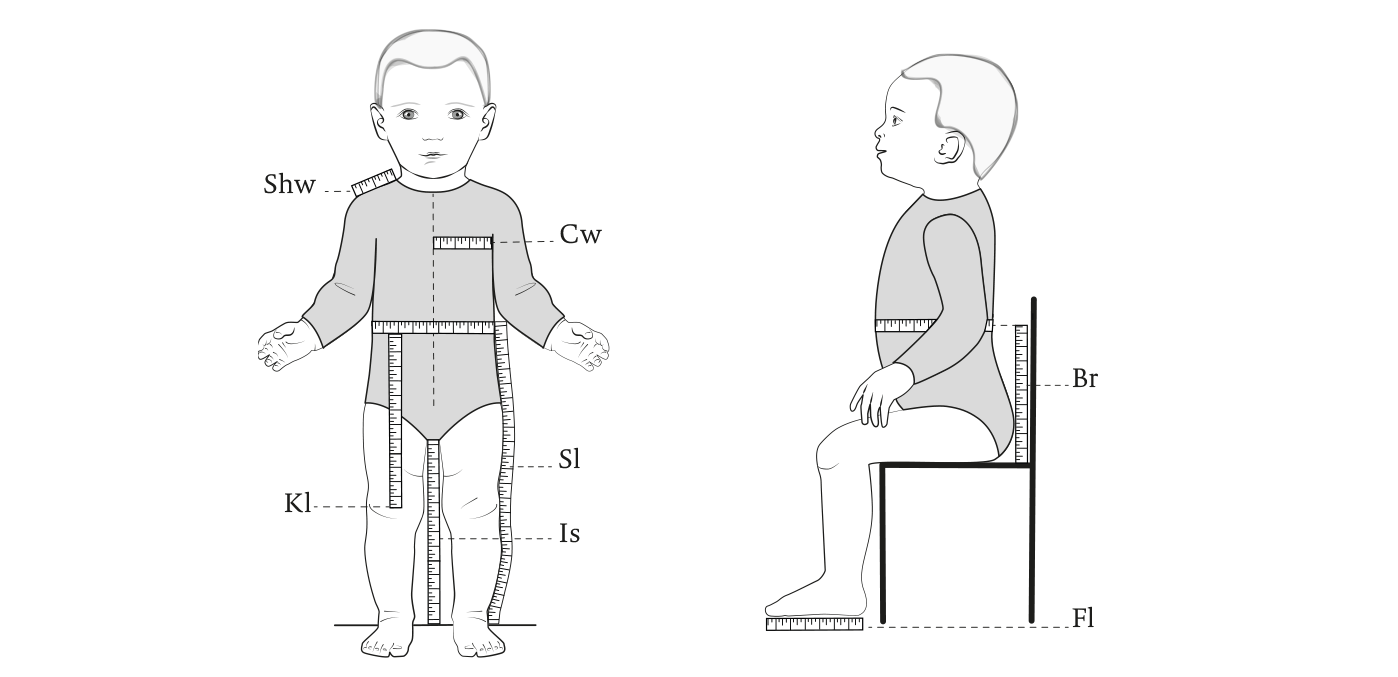
Pattern Construction Longsleeve Baby-Body
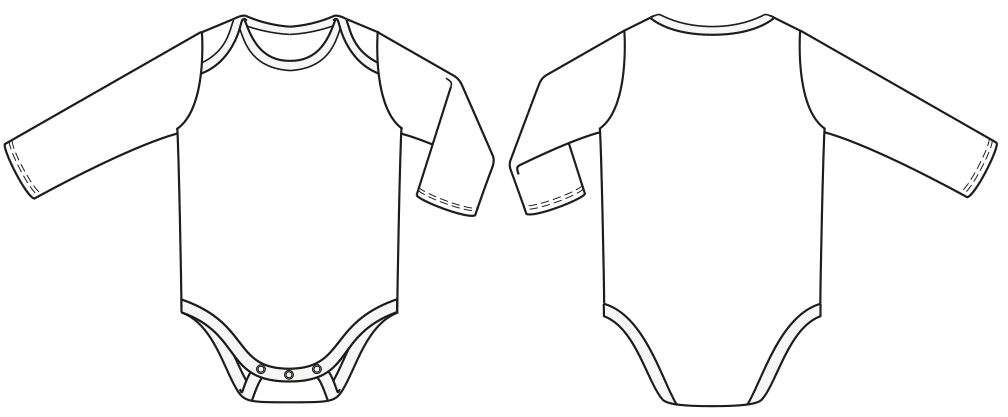
Front and Back Pattern
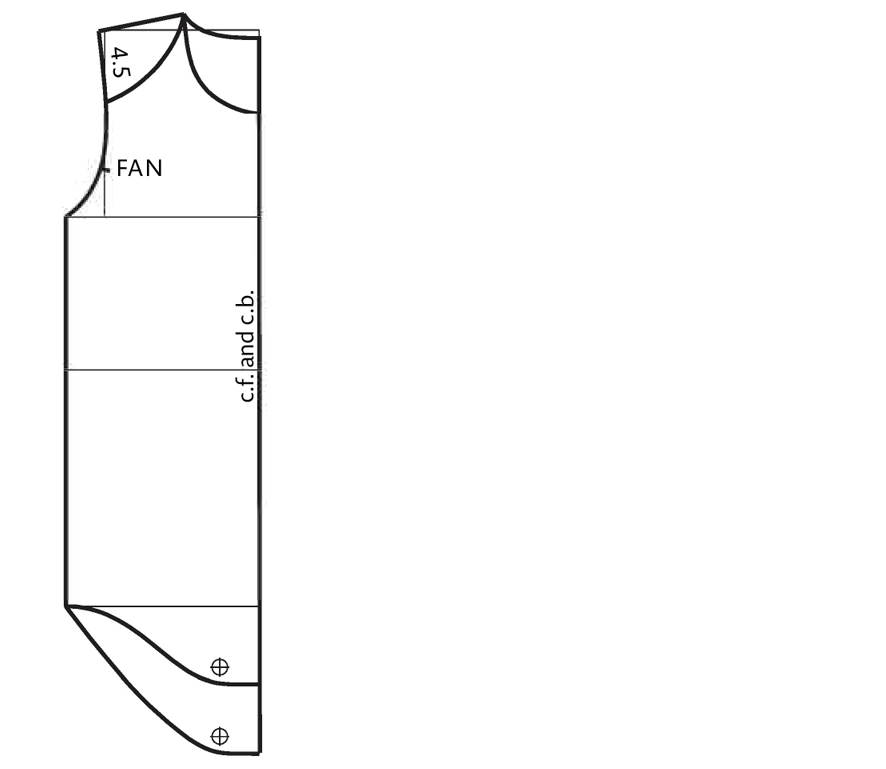
Use the basic body block in size 74 as a template. Since the head size of a baby in proportion to the neck size is much larger than the adult head, the neckline needs an extra opening for the head to pass through. There are several variations for the neckline closure. Often you can see bodies with snap placket at the shoulder. To avoid pressure and friction for delicate and sensitive skin, the overlapping shoulder is a simple and convenient variant, which provides enough width for the head. Draw the new shoulder seam as shown in the illustration and mirror it over the shoulder on the front and back pattern.
Finished Pattern Pieces
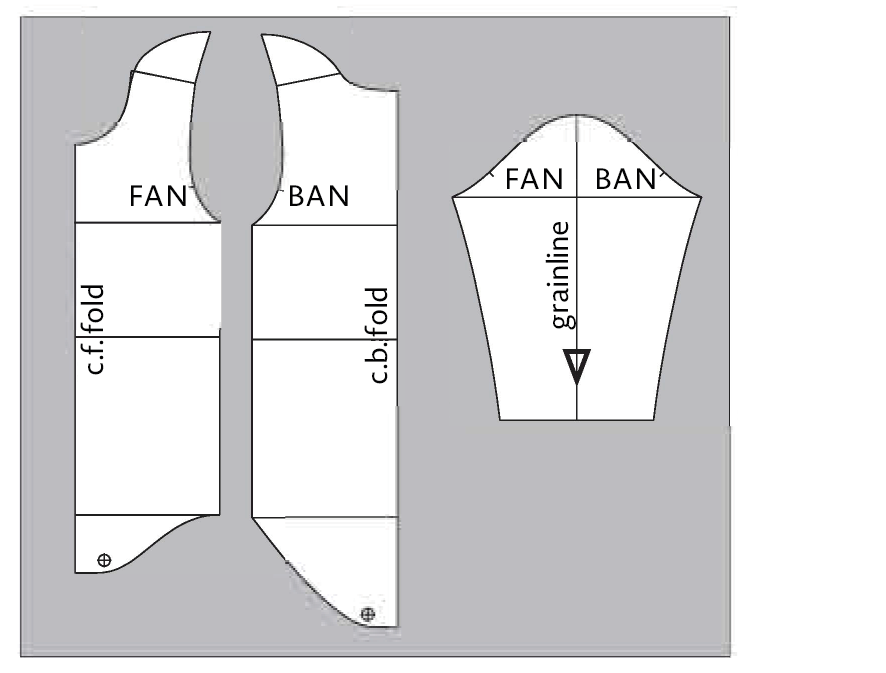
Figure 2 shows the finished pattern pieces.
Pattern Construction Wrap Body
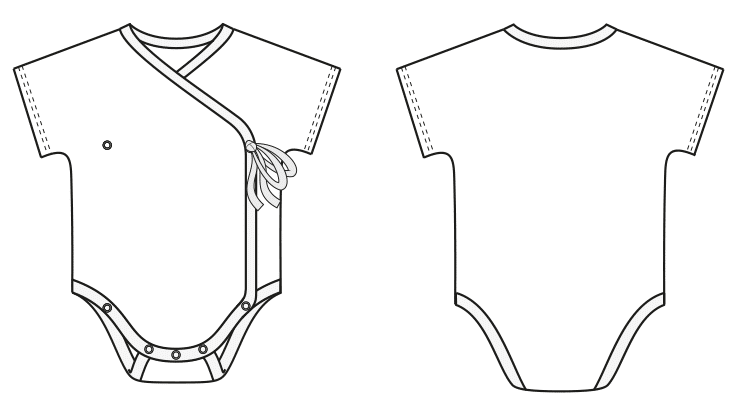
Front and Back Pattern
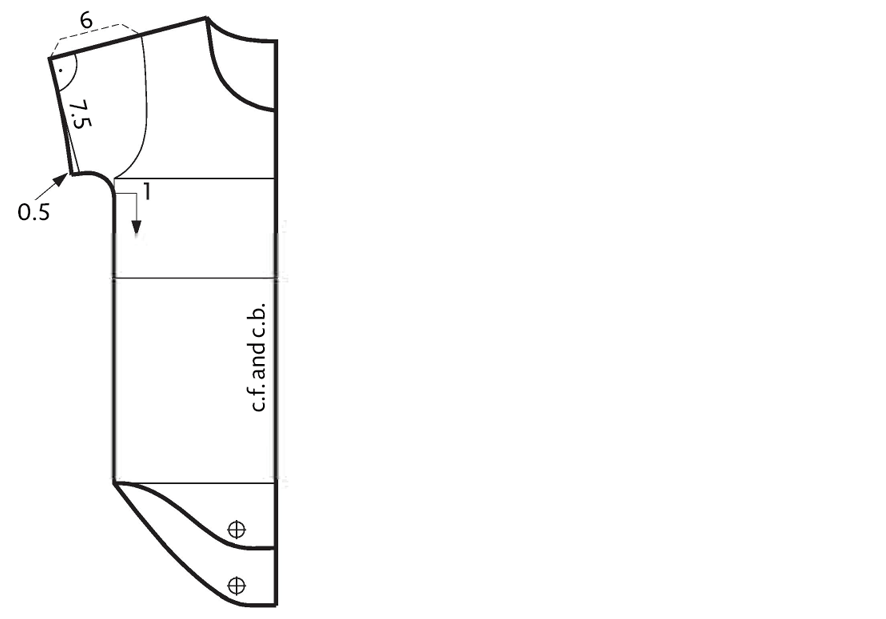
Draft the basic front and back pattern as shown for the body block in size 74 but according to the measurements of size 50 (see measurement chart). The armhole is drafted but the calculations of the sleeve measurements are not necessary. The wrap body is designed with short batwing sleeves. The body is constructed with a wrap closure, which is particularly convenient for handling newborns. In the first few weeks, the head should be lifted very gently and always supported. A body that must be pulled over the head is not suitable for a newborn. The wrap body can be easily opened and closed without lifting the head.
Finished Pattern Pieces
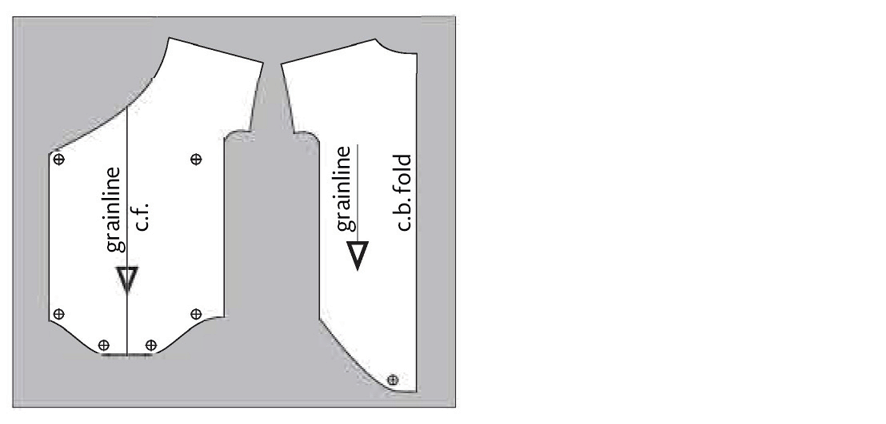
Trace a copy of the front pattern and mirror it over the centre front. Draw the neckline and the overlap for the wrap front. Mark the snap fasteners. Tie the overlap with a bow sewn from the binding. The right picture shows the finished pattern pieces.
Instructions for Pattern Construction for Baby Clothes
- In the e-dossier Pattern Making Baby Clothes you will find detailed instructions on how to construct the patterns for a long-sleeved baby body, a wrap body, a romper for the car, a baby sleeping bag, a pucksack (wrap bag), undershirt and underpants, taking measurements for babies, a pyjama suit, a romper suit, a long-sleeved shirt, pyjama pants and a short-sleeved romper.
Sewing Pattern for Baby Clothes
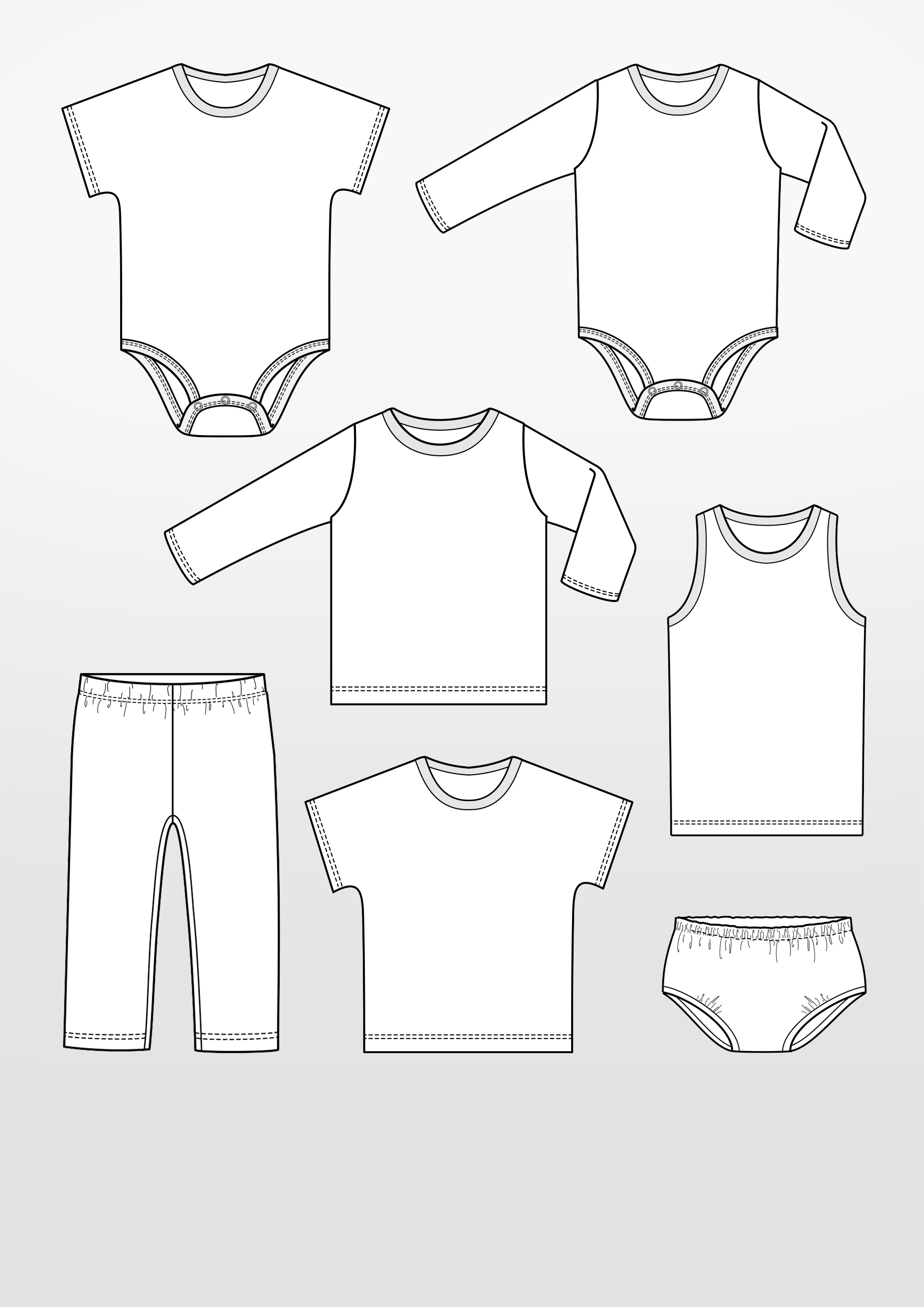
- On the pattern baby clothes you will find basic pattern for a long sleeve body, a long sleeve shirt, a short sleeve body, an undershirt and underpants, baby trousers and a short sleeve shirt. The pattern is only available with german inscriptions in the german shop.
Further instructions for pattern construction and finished patterns for sewing children’s clothing can be found in our online shop.


